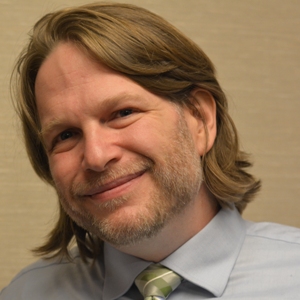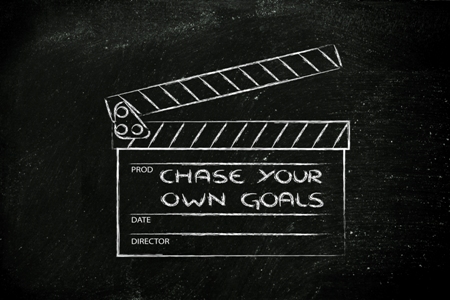Episode Highlights:
- Why you cannot (ever) be the owner of your business – before you are the owner of your life
- How to get over your fears, doubts and excuses, and why failures are so crucial for our success
- The one and only thing you need to focus on if you want to create a freedom in life through building a business around what you’re passionate about
Today’s Guest
Bravery had rewarded me a lot better than operating from fear. –Chris Brogan
Do you have a driving passion, whether it’s podcasting, writing, blogging, teaching, Photoshop, graphics, miniature trains, or anything else – but can’t seem to turn that into a thriving business?
Is your 9-5 job putting food on the table, but you’re not enjoying it (to say the least…)? Are your friends telling you that, “that’s just the way things are”?
If you struggle with finding work-life balance that will allow you to become the owner of the business that you want, and you find yourself running from the 9-5 to your errands and obligations, feeling that you don’t even have full control over your own world…
…The implications are that you’re always working in the business and not on your business. That you’re not doing the work that you want to be doing.
What you need is a solid plan to drive growth, become the owner of your life, and to get to the next level…
And to create this plan,we are joined today by no other than Chris Brogan!
Chris runs a professional development company called Owner Media Group.
Through the past several years, he run a marketing consulting group and worked with a lot of really big companies (like Google, Microsoft and Coca-Cola). At the same time, he experienced working with people at different parts of their journey of choosing to own their life and put together a business that they wanted to run as a part of that.
And so, what he enjoyed most along the way was the opportunity to speak to people about what does or what doesn’t work in making business.
“So along the way, I’ve just been working on unearthing the right mix of principles and guidance to help people really own the game that they most want to win, which of course would be their own.”, he explains.
Here’s our interview. By the way, you can listen to it in audio format by scrolling to the top and clicking ‘Play’
Owning Your Life VS. Owning Your Business
MB: Chris, on your website, you say you can’t own your business until you own your life. What does it mean to become the owner of your life, and how is it different from being the owner of your business?
CB: Well, let’s think about it for just a minute. I’ll back it up to why that could be a challenge. So imagine…
CB: I had a really interesting conversation with a woman who wanted some help with her fitness and health. She said, “Here I am, I’ve gone from a very large company to a very small company and I’ve gone from everyone taking my call to me really having to work to get a meeting with someone as head of sales of this very small company.”
CB: She said, “When they see me, they see an overweight woman; they see a very heavy woman.”
CB: She says, “I think that they are wondering how could I possibly keep my commitments to them if I can’t even keep my commitments to myself. So if I can’t honor myself, how could I possibly honor what I say I’m going to do for them and their business?”
CB: I never heard anything like this, but it makes great sense. So the idea of owning your life is really making and keeping commitments to yourself, staying disciplined.
CB: The word ‘discipline’ essentially means a daily honoring of those things you’re committed to and say that you value and that you wanna do. For instance, people would tell me, “Yeah, I’m trying to get healthy,” and then they’ll skip going to the gym for a week.
CB: Well, those two things can’t be true. One of those things is inaccurate. You either aren’t trying to get healthy or you would’ve found some way to get to the gym.
CB: So one part of owning your life is removing excuses from your life. That doesn’t mean that you’re not going to fail, but you’re never going to allow an excuse to be a reason for failure.
MB: So, for instance, if I decide to lose weight and I don’t go outside running because there is a terrible heatwave and it’s too hot to run … if I was being the owner of my own life I would be fixing it by finding something to do inside, instead of just saying, “Well, it was a super hot day. Gonna try again tomorrow”?
CB: Exactly. You would do something in your flat; you would adjust your calories for the day so that at least you weren’t eating as much as you normally would, so that you can have some deficit of calories there.
CB: And I would like to say that I think it does relate to entrepreneurship because all the tools and drills and skills that we learn in balancing our lives out — in a making our lives work — is what we need as an entrepreneur.
CB: Entrepreneurs make and fill the gap between needs and what we are capable of doing. So, if you can increase your capabilities and you become able to fulfill the gaps in your own life, that’s gonna translate into confidence in your capability to fulfill gaps for other people as well.
CB: I’ve been able to bring many of the lessons that I’ve learned in reclaiming my health to bear on what’s going on in business experiences as well. I learned how to sell better by learning how to work better at the gym.
CB: Things even as simple as getting enough rest; a lot of entrepreneurs think that it’s very cool or it’s part of the lifestyle to not sleep. But I find that well-rested makes me smarter than most of the other people at the table, who find themselves clever.
The War For Ownership – Overcoming Fear
MB: What are some of the battles you feel you lost in this war to claim ownership?
CB: That’s a very good question. First off, I think that entrepreneurs (or people who aspire to be entrepreneurs) have this belief, that once you attain some level of success, then you never ever get below that level again — and it’s just not true.
CB: All life is in flux all the time. Your financial wealth and your health can go up and down quite a lot; the market that you’re working in maybe can change dramatically, especially when I’m involved in (sort of) technology and business-type markets where fluctuations are part of the game.
CB: Some of the battles I’ve lost are…
CB: I’m not a big fan of doing research. I’m a big fan of trusting that the community that I’ve surrounded myself with and that I have the honor to serve is indicating what they say they need.
CB: Sometimes, I followed the lead into something where I’ve made the offering that I felt that they asked for and they didn’t want it. And so, I spent a lot of money chasing a lot of mistakes early on.
CB: I think the other thing I did wrong is following one of my legend/hero-types, Sir Richard Branson. He has four hundred companies, and in my mind, I thought I can run more than a few companies. But what he also has is thousands and thousands of staff, so that he can really lay out a vision and then know that everyone else will run with it.
CB: I have a very small staff, and my hands are on most everything that I do. So I found that like a lot of people, I felt like I could multitask even in the kinds of businesses I ran, which caused a lot of failure as well.
CB: So I would say that if there’s any kind of big theme to all the different things that I’ve tried, any time that I worked out of fear — let’s say fear of losing money or fear of not making enough revenue for instance — everything collapsed in a bad way.
CB: Every time I operate out of courage, even if I’m still afraid, but I just put more of my energy towards courage, then everything kind of works a lot better. Bravery has rewarded me a lot better than operating from fear.
Creating A New Plan
MB: One of the first books that people go to, to learn how to create not only a great business, but the entrepreneurial lifestyle is the 4-Hour Workweek.
MB: On your interview with my good friend, Jared Easley on Starve The Doubts, you mentioned that the 4-Hour Workweek is a bigger fairytale than Cinderella. What do you think was left out?
CB: I would say that what Tim Ferris wrote is accurate and appropriate. I would say that what we pick up from that book becomes the base-line of the fairytale; People read the wrong lessons and run with the wrong parts of the book, and don’t really sink all the way through the ideas that are required to understand how to make the system happen.
CB: What we most need to do is: when we think we’re going to run our own business, we misunderstand and think that busy equals good. We think that hustle, just random hustle, equals good. We somehow think that throwing away all our systems is a good plan.
CB: Maybe we need to remove some systems, but we need some basic systems in place; Let’s say I’m in Boston and I wanna visit, Abu Dhabi in the United Arab Emirates. Well, I have to figure out a few things:
CB: I would have to figure out an airplane ride or two, or where I’m going to stay. Do I need some money? What’s the currency there? I probably need to know some customs. So, there’s a lot of things that have to go in place.
CB: A lot of times, for some reason, when people get entrepreneurial, they go no further than buying the website, setting up WordPress, and saying “I’m a business!” I find that’s exactly backwards.
CB: Entrepreneurs don’t build something and try to drag people over to it. Entrepreneurs fill a need that already exists, and make sure that the people that have that need can find this solution.
CB: So I think that probably the biggest first step is: knowing where you want to go, and starting immediately on what systems am I going to need to make that work.
The Only 1st Step An Entrepreneur Needs
MB: So what’s the first destination aspiring entrepreneurs need to figure how to get to, and how will they get started with creating a plan to get there?
CB: They need to answer a very, very simple question: How does my passion serve somebody else?
CB: So what separates the artist who lives in his parents’ basement and maybe has to work a grocery store job to make any cash, from the artist who thrives and serves the community is that one of them thinks with the community in mind. This goes opposite of how many creative people think.
CB: They think, “I shall be creative and everyone will love my work.” And to an extent, that’s true. You do have to bring something to it.
CB: People have to see themselves or see something that resonates with themselves in your work or the work is of no value to them. That’s where a lot of creative and entrepreneurial people get something wrong.
CB: So the very first question after one decides that they’re going to go their own way, is how does this serve somebody else?
CB: For instance, when Jared Easley does Starve The Doubts, he says, “I think that there are other ways to make a job and make a business.” So one of the things he did was launch with some friends the Podcast Movement.
CB: He figured, “If I make up a gathering, which would get other like-minded people who want to understand how podcasting can improve their business together, then that’s a good way to make it work.”
CB: I find that there are other ways to make money. But one of the ways that we can make money in a way that keeps our passion alive is to find the people that we can serve with this passion.
CB: For instance, if someone wants to be a professional sports-player, it’s a little difficult because, you have to find a team. There’s a set of rules. It’s a job not unlike any other job to do that kind of work.
CB: It’s just the same as working at Best Buy, only you wear different clothes or something. But, when we truly want to get out of basic system jobs, then we have to actually redefine a marketplace first and foremost.
CB: If there’s no marketplace, there’s no market. If there’s no community around that marketplace, then there’s no way to get the word out.
CB: So we really need to understand that. Then, perhaps from there, we can create content that drives some awareness into the community and invite some small amount of them to participate in that marketplace.
Kicking Fear In The Face
MB: If someone is thinking, “I previously attempted with entrepreneurship and I failed. I’m not sure I can do this.” What do you say to them?
CB: Ah, my goodness. I mean, you failed at other things in your life. Why did you not stop then? You are walking, and you probably failed many times as a baby, and yet I see people walking everywhere. I don’t see everyone laying on the ground –– so we must have succeeded after many attempts.
CB: Lots of people fail, and I think that you have to fall in love with failure. You have to embrace failure because on the other side of every failure is the right way to do it and you’ll succeed.
Putting A Plan Into Action With Help From Chris Brogan
MB: If people want to learn more about it, and get more step-by-step guidance and support from you, Chris, where can they find it?
CB: Probably the easiest is to go to chrisbrogan.com and maybe start with my newsletter, which is different than most people’s. It comes out every Sunday. Not only do you get some kind of advice or idea that’s fresh and not only exist on the newsletter — I don’t re-purpose my blog or anything, but you can hit reply and talk directly to me.
CB: You have direct access to me, which gives me the opportunity to serve people better.
Action Steps
If you could tweet Chris Brogan (@chrisbrogan) and just thank him for spending twenty minutes with us today, that will be absolutely superb. You can do that real quick by clicking here
After that, go ahead to chrisbrogan.com, check out his blog and newsletter.
You are amazing, and I will see you next Thursday.
Meron
Mentioned Resources
- Chris on Twitter (@chrisbrogan), Facebook, LinkedIn and Google+
- Chris Brogan’s blog and weekly newsletter
- Owner’s Path
- Owner Magazine, courses and it’s podcast
- Chris’ booklist on Amazon
- 4-Hour Workweek by Tim Ferriss
I Need Your Help!
If you haven’t already, I would love if you could be awesome and take a minute to leave a quick rating and review of the podcast on iTunes by clicking on the link below. It’s the most amazing way to help the show grow and reach more people!
Leave a review for Meron’s podcast!
Affiliate Disclosure: Please note that some of the links above are affiliate links. There is no additional cost to you, and I will earn a commission if you decide to make a purchase.













Meron (and Chris) this was an excellent show, one that I felt was tailored for me and my situation. Such incredible life advice packed into 20 minutes! And Meron, your last question on what to do when you encounter a failed attempt….priceless. Thank you, both, for giving of your time and knowledge!
Thank you, Trevor, for allowing me into your life every Thursday I think that last answer was one of the most important ones given on IIP. Would you agree?
I think that last answer was one of the most important ones given on IIP. Would you agree?